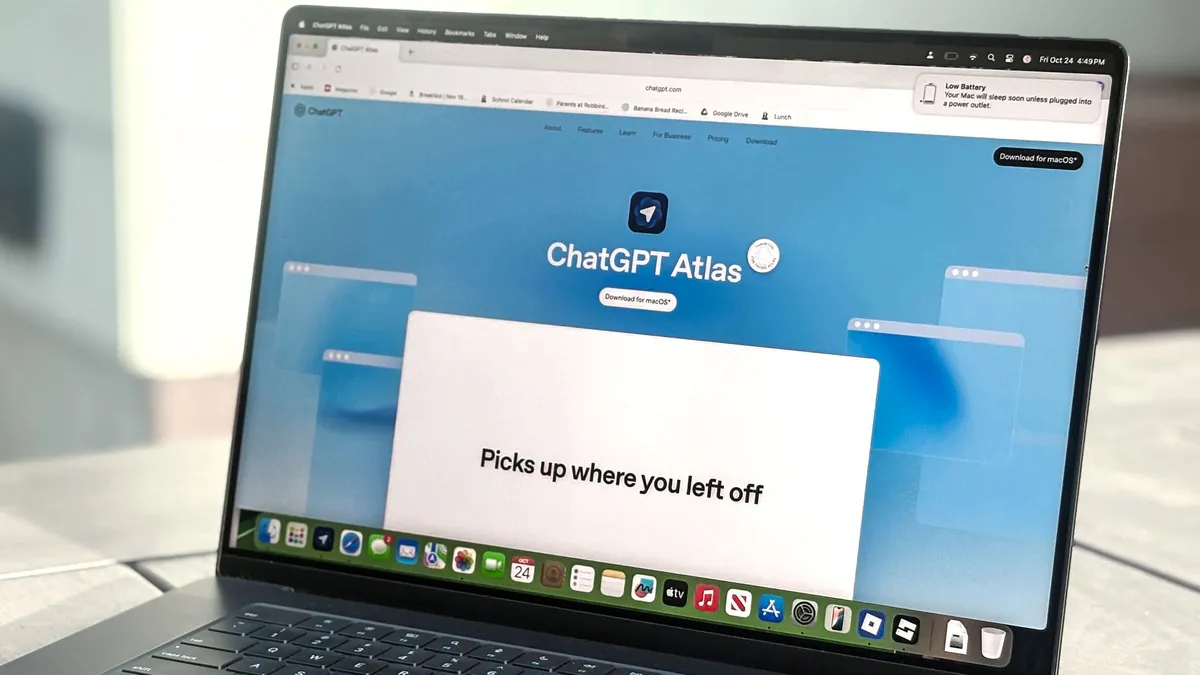
OpenAI's ChatGPT Atlas introduces a groundbreaking approach to web browsing by integrating artificial intelligence directly into your daily online activities. However, for users like me, who primarily browse on mobile devices rather than desktops, Atlas feels more like a co-pilot that I didn’t really ask for. While I acknowledge that Atlas is a remarkable tool—essentially a browser with ChatGPT features—it may not cater to the needs of every user.
ChatGPT Atlas stands out as the most intelligent browser I’ve encountered, offering quick page summaries, personalized context, and memory-aware suggestions. The interface is reminiscent of ChatGPT, making it familiar for users who have previously engaged with OpenAI's chatbot. Despite its impressive capabilities, after testing it with various prompts, I found that I don’t particularly need its assistance for my browsing habits.
One major factor influencing my opinion on ChatGPT Atlas is that I typically browse from my smartphone rather than my desktop. My desktop serves primarily as a workspace. Just as I wouldn’t scroll through Instagram on my computer, I don’t use my desktop for web searches. When I need to fact-check something, I prefer to go directly to the source rather than rely on Atlas to guide me. The current desktop-only functionality of Atlas makes it a poor fit for my browsing style, which often involves quick taps on my phone while I’m waiting in line or picking up my kids.
When using Chrome or Google, I can quickly shift my search queries as new links populate. In contrast, ChatGPT Atlas can sometimes provide overly detailed responses, which can be frustrating if I’m looking for quick answers. While I appreciate the ability to ask follow-up questions and receive personalized assistance—such as when I searched for reading lights and found tailored recommendations—this level of help may be excessive for many users.
For individuals like students, researchers, or anyone facing information overload, ChatGPT Atlas can be a dream tool. However, for confident browsers with good reading comprehension and a clear understanding of their objectives, Atlas might feel like an unnecessary addition to their workflow. I prefer to engage directly with articles rather than receive constant guidance from an AI.
While I find some features of Atlas to be superfluous, there are several genuinely useful tools that set it apart from traditional browsers like Chrome:
Thread memory: Keep multiple searches organized across different tabs. Context-aware chat: Understands what you’re reading and aids in deeper exploration. In-browser writing tools: Simplifies tasks such as drafting emails and summarizing documents.These features can be transformative for users whose workflows are already integrated with AI. However, I prefer to keep my AI interactions separate from my browsing experience.
In summary, ChatGPT Atlas represents a powerful fusion of AI and web browsing capabilities. For power users, researchers, or anyone seeking a deeply embedded AI assistant in their reading and writing processes, it’s undoubtedly a game-changer. However, for casual users like me, who primarily browse on mobile devices, Atlas feels smart and capable—but ultimately not essential. Until OpenAI extends Atlas to mobile platforms, I will continue to rely on Chrome for my browsing needs.
Stay updated with the latest news, analysis, and reviews by following Tom's Guide on Google News. Don’t forget to click the Follow button!